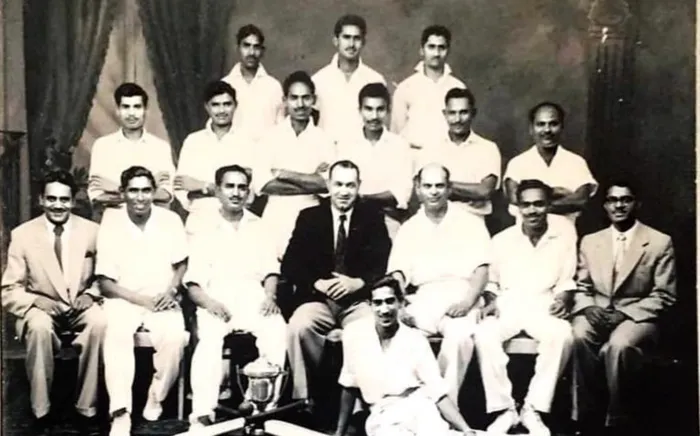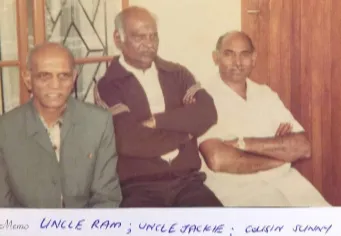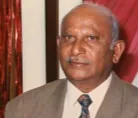The legacy of Puntans Hill Cricket Club: a family's journey through sport
History

Back row: MA Naidoo, G Naidoo and AV Naidoo. Middle row: A Ramaaidon, BP Naidoo, Sassy Naidoo, Kenny Naidoo, Johnny Naidoo and G Naidoo. Front row: Billy Naidoo, Danny Naidoo, Bates Naidoo, JB Goodford (manager), Bobby Naidoo, Tommy Naidoo and KR Naidoo. Front on the floor: Daddy Naidoo. | Supplied
Image: Supplied
THE Puntans Hill Cricket Club, which was situated near Morningside in Durban, had a deep-rooted history with sport.
The club started in 1951, which, at the time, comprised mostly one large extended family with the surname Naidoo.
Kevin Naidoo, 58, a retired account manager whose dad and uncle played for the club, said Indians predominantly lived in the area; and his Naidoo forebears were from Hyderabad in India.
Kevin, who was born and raised on Silver Willow Road in Puntans Hill, recalled: "My dad, Johnny Naidoo, and uncles, Bobby and Jackie Naidoo, as well as our relatives were part of the Puntans Hill Cricket Club. I followed in my family's footsteps much later and played league cricket for Crimson Cricket Club for five years until I retired from the sport at age 35."

Ram, Jackie and Sunny Naidoo, family and cricketers of the club.
Image: Supplied
Kevin, who now lives in Centurion in Johannesburg, said Bobby was the first "non-white" Postmaster General in South Africa. He learnt about the "gentleman's game" during World War II where he served as a soldier.
"The war started in 1939 but he joined the army in 1940. His first assignment was in Egypt. From there, he moved to Italy. During his time at war, he learned cricket, while being with the English.
"My uncle was big, tall and resembled a white man. When he returned to South Africa after the war ended, he started coaching his brothers to play cricket. That is how they became better at their game.
"Cricket was considered a gentleman's game and you had to wear a uniform. To get a white uniform was not easy financially, especially when one household had three brothers, four nephews and cousins playing the same sport.
"My uncle instilled in them that if they wanted to be professionals, they had to have white uniforms and cricket boots. This gave each one of them something to strive toward getting. Uncle Bobby was fortunate in that he used to get a wage from the army, so he was able to get the right gear."

Johnny Naidoo.
Image: Supplied
Kevin said the challenges did not end there.
“There were no facilities available for them to play cricket, so they started playing on the road. One day, a white man recognised their talent. He approached the mayor for help and they eventually secured the use of the park grounds in Valley View. But the grounds were not exclusively for them to use like with other clubs and they remained in the third division.
"As with any sporting team, the aim is to progress up the ranks. After some time, the Naidoos wanted to get affiliated to the District Cricket Union. However, they could not get affiliated because of restrictions. Eventually, James Goodford moved into the area with his family. They approached him to be their manager but they still could not get into the second division.
"The Naidoos decided to try and get affiliated with the Durban District Cricket Union but they were refused again. They were told they could not get affiliated because they did not have a home-based cricket ground. The Naidoos remained in the third division with only three or four sides to play against.
"Up until 1959, they did not get a promotion. They were winning the division every year without moving forward. In addition to not having a home ground, part of the reason that they also did not progress was because cricket was an expensive sport and they did not have financial support. Due to many failed attempts and not being recognised for their talents, the cricket club folded in 1960."
Kevin said they then started Puntans Hill Football Club in 1960.
Some of the family members played for the club and went on to play professionally for Aces United, a Durban football team.